Gluten Free Labeling Vigilance
As an Amazon Associate and member of other affiliate programs, I earn from qualifying purchases.
Despite an FDA definition and ruling, the Celiac Disease community still struggles with accurate gluten free labeling. All too often producers want to “meet the trend” without taking all of the necessary precautions. Here are some situations to be on the lookout for while shopping.
Before We Panic & Break Out the Pitchforks
Before I start to freak everyone out, the majority of food labeled gluten free IS in fact safe. Gluten Free Watchdog published a paper a few years ago, showing her combined test results of 158 different products. That report showed 96% did in fact test under 20 ppm of gluten, with 87% testing under 5 ppm of gluten.
However, what do we do with that remaining 5%? We make sure to read labels and ask questions. If a product makes us sick, we report it to the FDA. It a product is misbranded with gluten free labeling, but specifically contains wheat, barley, rye or their by-products, we report it to the FDA. (Here’s how to report items to the FDA.)
Bakers offering “gluten free” options
Five years ago, I visited a cupcake stand. A friend mentioned that they now offered “gluten free” options. However, when I asked the man at the counter about their preparation methods, he responded – “They’re gluten-free but not celiac.”
Not “celiac safe,” or “celiac friendly.” Simply, “not celiac.” Which is obvious, because Celiac is a disease, not a pastry. I don’t know which is scarier – that he had no clue what he was talking about, or that my friend almost bought me one and I would have eaten it. Later I learned they didn’t have dedicated gluten free equipment or prep days.
Preparation methods matter. I wish bakers catered to safety precautions, not trends. I recently had a keto baker tell me her products were not safe for those with Celiac Disease, despite using the hashtag #glutenfree on her Instagram and social media channels. Always ask questions. And DON’T get me started on wheat based sourdough. Oy vey.
Restaurants & “Gluten Friendly”
We see it all too often. Restaurants use gluten free labeling (or “gluten friendly”) on their menus, only to have a disclaimer that the food is not safe for those with Celiac Disease. This may be out of an abundance of caution and legalese. However, it could be because they refuse to boil fresh water for gluten free pasta, or use a separate fryer for gluten free french fries.
Products with Oats
Oats are the bane of my existence. The FDA states oats are a gluten free food. However, oats frequently come into cross contact with wheat. The result is oats and oat products that contain well over 20 ppm. See the graphic above for statistics from studies performed by Gluten Free Watchdog. My latest frustation? Tortilla chips with oat fiber.
Lately, companies started using “mechanically sorted oats.” Even products with gluten free labeling. However, Gluten Free Watchdog recently tested the John McCambridge Bread Kit. This Irish product, labeled gluten free, tested twice over 20 ppm. After hearing her results, they plan switch to a purity protocol oat provider.
Malt in products labeled gluten free
Unfortunately under FALCPA, barley is not one of the top 8 allergens. (Neither is rye, but it’s not as sneaky.) Malt comes from barley, and is found in brewer’s yeast, malt flavoring, and an assorted amount of items. Because it’s not an “allergen,” the FDA lacks enforcement of the gluten free labeling law.
For instance an Aldi snack bar in 2016, contained malt. Even despite being certified gluten free by a third party organization. It took frequent contacts to the FDA, the independent certifying organization, and even Aldi to remove the product from shelving. I say this not to freak you out, but to always remember to read labels, even if certified.
“Gluten Reduced” Labeling
There are plenty of food and beverage producers that make products that are natuarally gluten free. So why do some people feel the need to mess with science and our health by creating “gluten removed” products? If you’ve been following me, you know my disdain for Gluten reduced beer. (Click that link for research about why it’s not safe.)
The new latest item? The company Good Wheat release a product called “Reduced Gluten Wheat Flour.” They state their product contains”65% less (allergenic) gluten than regular flour.” However,when Gluten Free Watchdog tested it, this flour contained at least 4,000 times the FDA’s defnition of gluten free. (20 ppm)
One Last Reminder About Gluten Free Labeling
The FDA does not require producers to confirm testing prior to adding a gluten free label to their product. This means misleading or misinformed producers will not be caught unless we ask the proper questions. While I don’t want us to live in constant anxiety, I want to make sure we all perform our due diligence to keep ourselves safe.
Therefore, support companies that have taken the time to certify their products through independent testers. Frequent businesses that have taken the huge investment to have a dedicated facility. Publicly praise companies that do things right, so that others may support them as well.
So Where Do We Go From Here?
I want to reiterate that the majority of gluten free food items are safe. Most manufacturers seek to do things ethically and consciously, and want to keep us safe. Gluten free certification takes great strides to keep us safe. Even when products are made in a shared facility.
However, like anything in life, there are the outliers. And in those moments, we need to speak up.
If you see an issue with a product, GO TO THE BRAND FIRST. Maybe there’s a misprint on the labeling, and it needs to be changed. A brand can then alert the FDA and recall their products. If they refuse to act, then get the FDA and the gluten free community involved. We’re in this together. Let’s work to make things safer for us all.

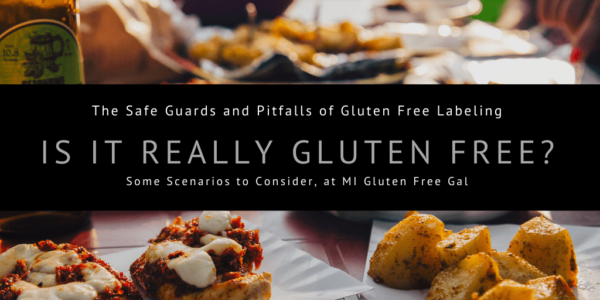
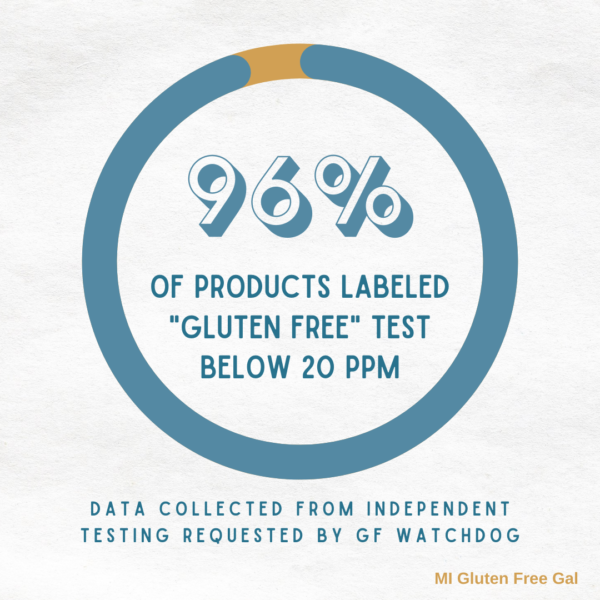
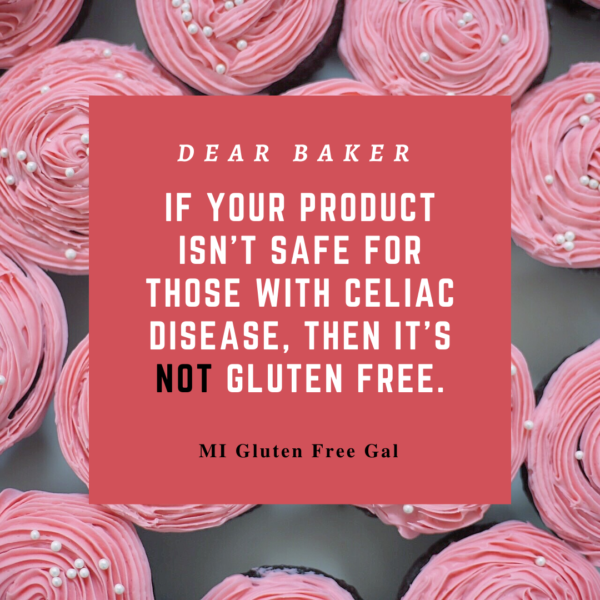
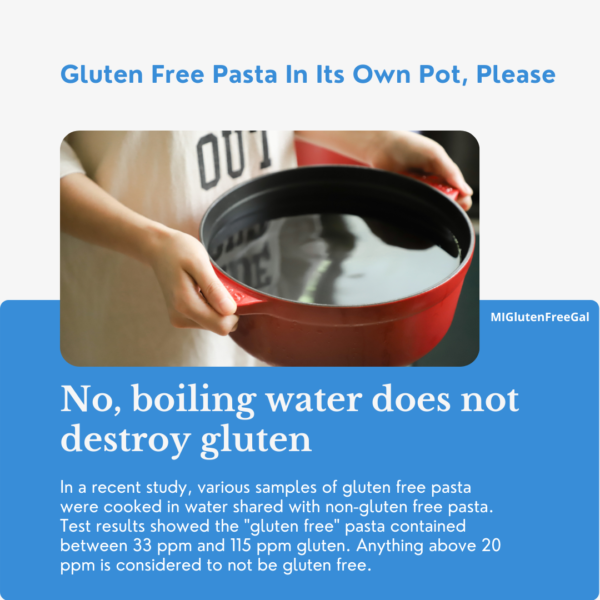
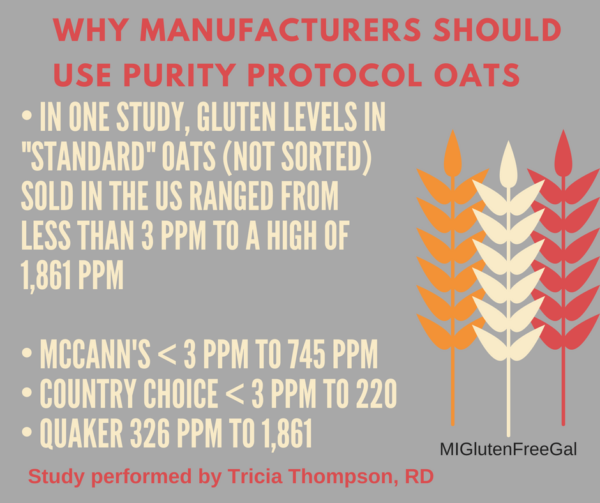
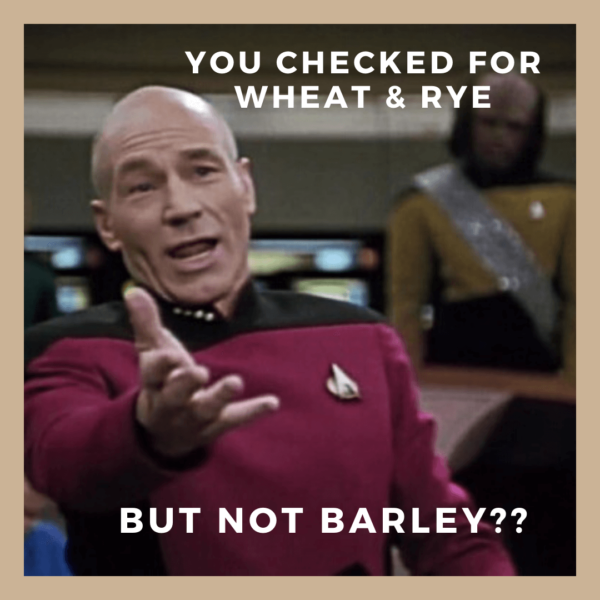
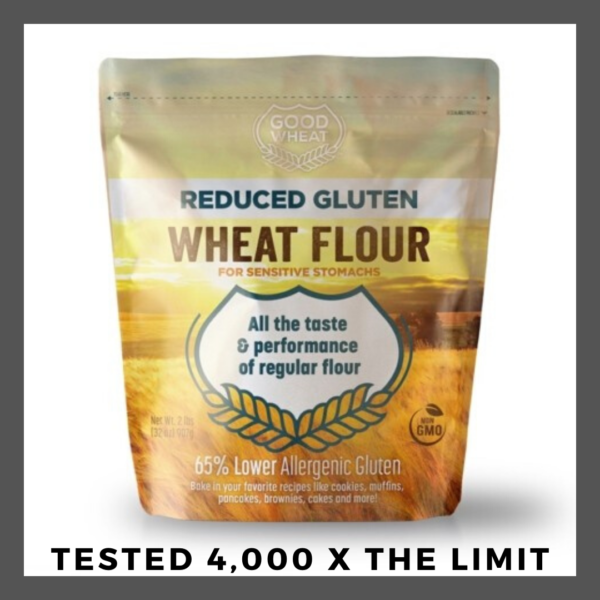
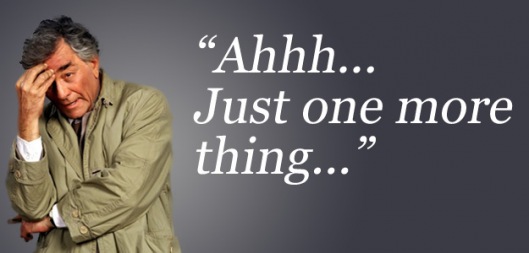
I so appreciate your blog. I am celiac and so frustrated by “gluten sensitive” everywhere. I have eaten out twice this year and been glutened. I had a long conversation with a manager who had items on their gluten free menu with an asterisk saying it may contain gluten. I asked her to take them off that menu and she said it is not for celiacs but sensitive. I told her they don’t want to eat gluten either. I believe with all the fad dieters we are going backwards with safety.